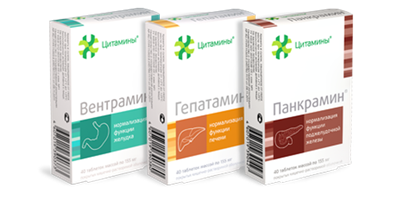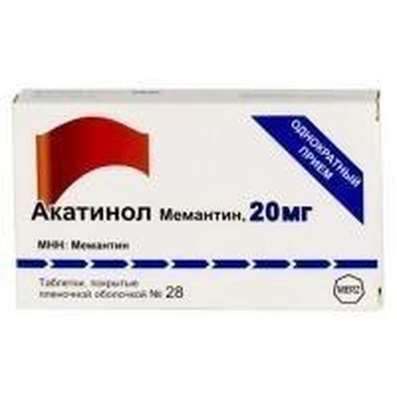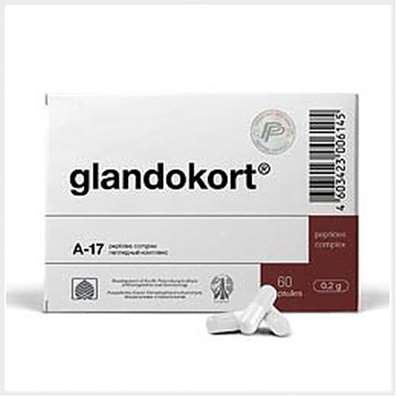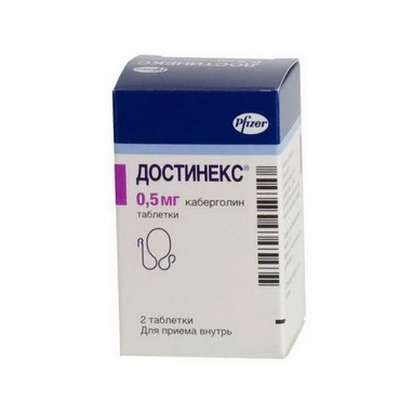Instruction for use: Medroxyprogesterone (Medroxyprogesteronum)
I want this, give me price
Pharmacological group
Estrogens, gestagens; Their homologues and antagonists
Antineoplastic hormonal agents and hormone antagonists
Nosological classification (ICD-10)
C50 Malignant neoplasm of breast
Cancer of the nipple and areola of the breast, Breast carcinoma, The hormone-dependent form of recurrent breast cancer in women in menopause, Hormone-dependent breast cancer, Disseminated breast carcinoma, Disseminated Breast Cancer, Malignant breast cancer, Malignant neoplasm of breast, Contralateral breast cancer, Locally advanced or metastatic breast cancer,Locally-distributed breast cancer, Locally-recurring breast cancer, Metastatic breast carcinoma, Metastasis of breast tumors, Metastatic breast carcinoma, Inoperable breast carcinoma, Incompatible breast cancer, Breast cancer in women with metastases, Breast cancer in men with metastases, Breast Cancer, Breast cancer in men, Mammary cancer, Breast cancer with distant metastases, Breast cancer in postmenopausal women, Breast cancer hormone-dependent, Breast cancer with local metastases, Breast cancer with metastases, Breast cancer with regional metastases,Breast cancer with metastases, Common hormone-dependent forms of breast cancer, Common Breast Cancer, Recurrent Breast Cancer, Recurrence of breast tumors, Breast cancer, Estrogen-dependent breast cancer, Estrogen-Dependent Breast Cancer, Disseminated breast cancer with overexpression of HER2, Tumors of the mammary glands
C51-C58 Malignant neoplasms of female genital organs
Tumors of female genital organs
C54 Malignant neoplasm of uterus
Uterine cancer, Cancer of the body of the uterus, Sarcoma of the uterus
C64 Malignant neoplasm of kidney, except for renal pelvis
Wilms swelling, Kidney Cancer, Metastatic Renal Cell Carcinoma, Renal carcinoma, Inoperable kidney carcinomas, Metastatic kidney carcinoma, Metastatic Renal Cell Carcinoma, Wilms tumor, Wilms swelling, Adenomyosarcoma, Adenomyocystosarcoma, Adenosarcoma of the kidney, Kidney Cancer, Common renal cell carcinoma, Nephroblastoma, Nephroma, Embryonal nephroma, Recurrent carcinoma of the kidney, Birch-Hirschfeld Tumor, Common renal cell carcinoma, Tumors of the kidney
N80 Endometriosis
Endometrioid endometriosis
N91 Lack of menstruation, meager and rare menstruation
Amenorrhea, Amenorrhea hypogonadotropic, Amenorrhea is prolactin-dependent, Oligomenorrhoea, Shortening of the secretory phase of the menstrual cycle, Menstrual disorders, Menstruation disorders, Prolactin-dependent amenorrhea without galactorrhea
N93 Other abnormal bleeding from the uterus and vagina
Atonic uterine bleeding, Prolonged menstruation, Blood loss during menstruation, Bleeding from the genitourinary system, Bleeding uterine dysfunctional, Bleeding from the genital tract of organic etiology, Uterine bleeding, Menorrhagia with fibroids, Functional uterine bleeding, Abnormal bleeding from the genitals in women
N94.3 Premenstrual tension syndrome
Pronounced premenstrual syndrome, Menstrual psychosomatic disorder, Menstrual syndrome, Premenstrual tension, Premenstrual status, Premenstrual period, Premenstrual syndrome, Menstruation syndrome
N95.1 menopausal and menopausal status of women
Atrophy of the mucosa of the lower genital tract, caused by estrogen deficiency; Vaginal dryness; Autonomic dysfunction in women; gipoestrogeniya state; Deficiency of estrogen in menopausal women; Degenerative changes of the mucous membrane in the menopause; Natural menopause; an intact uterus; climacteric; Menopause women; Menopause in women; menopausal depression; Climacteric ovarian dysfunction; Menopause; Climacteric neurosis; Menopause; Menopausal symptoms complicated psychovegetative; Climacteric syndrome; Climacteric vegetative disorders; Climacteric psychosomatic disorder; menopausal disorders; Menopausal disorders in women; menopausal condition; Climacteric vascular disorders; Menopause; Menopausal vasomotor symptoms; menopausal period; Lack of estrogen; Feeling the heat; Pathological menopause; perimenopause; menopause; postmenopausal; Premature menopause; premenopauznom period; tides; hot flashes; flushing in the Meno and postmenopausal; Hot flashes / hot flashes in menopause; Heart attack during menopause; Early menopause in women; Disorders of menopause; climacteric syndrome; Vascular complications of menopause; Physiological menopause; Estrogendefitsitnye state; premature Menopause
Z30.0 General advice and advice on contraception
Safe sex, Intrauterine device contraception, Contraception, Contraceptive intrauterine, Oral contraception, Oral contraception during lactation and with estrogen contraindications, Postcoital contraception, Prevention of Pregnancy, Prevention of unwanted pregnancy, Emergency Contraception, Episodic prevention of pregnancy, Contraception in adolescents, Prevention of pregnancy (contraception)
Code CAS520-85-4
Characteristics of Medroxyprogesterone
White or off-white crystalline powder odorless, resistant to air. Soluble in acetone and dioxane, in part - in ethanol and methanol, it is difficult - in ether, insoluble in water.
Pharmacology
Pharmacological action - contraceptive, antitumor, progestogen.
Inhibits the secretion of gonadotropins by the pituitary gland, prevents the maturation of the follicle and ovulation, promotes thinning of the endometrium. In high doses, with a normal content of estrogens, the transformation of the proliferative endometrium into a secretory one results. Possible manifestations of androgenic and anabolic effects.
Binding to plasma proteins - 90-95%, T1 / 2 - 30 hours Metabolized in the liver. It is excreted mainly with urine in the form of a metabolite.
When taken for contraceptive use reduces the risk of inflammatory diseases of the genitals, candidiasis vulvovaginitis. Given the high contraceptive effectiveness and the specific effects on hormone-dependent organs, the use of late reproductive and older age in women is preferable, especially in the presence of hyperplastic endometrial processes, uterine myomas, endometriosis. In most women with hyperplastic endometrial processes, partial or complete regression is observed. In breast cancer, there is a correlation between the effectiveness of therapy and the concentration of estrogen and progesterone receptors in the tumor tissue.
Indications
Contraception, especially in women of late reproductive age; unresectable, recurrent and metastatic carcinoma of the endometrium, and kidney (additional palliative therapy), hormone-dependent forms of breast cancer in postmenopausal women of recurrent cancer.
Inside - secondary amenorrhea, dysfunctional uterine hemorrhage, premenstrual syndrome, vasomotor symptoms in menopause, endometriosis, diagnosis of primary and secondary amenorrhea, prevention and treatment of osteoporosis in post-menopausal (in combination with estrogen and calcium preparations), prevention of endometrial changes during replacement therapy Estrogens in postmenopausal women.
Contraindications
Hypersensitivity, thrombophlebitis, thromboembolism, or a history of stroke, liver disease, unspecified etiology vaginal bleeding, pregnancy, lactation (stopped).
Side effects
Menstrual disorders, thromboembolism, insomnia, irritability, drowsiness, fatigue, weakness, depression, dizziness, headache, edema, nausea, abdominal pain and discomfort in the abdomen, breast tenderness, galactorrhea, cervical erosion, hirsutism, alopecia, fever Weight change, moonlike face, osteoporosis, urticaria, pruritus, acne, anaphylaxis and anaphylactoid reactions.
Interaction
Aminoglutethimide reduces plasma concentration and reduces efficacy.
Routes of administration
In / m (intramuscularly), intravenously (intravenously), orally.
Precautions
The first method should be prescribed only on the 5th day of normal menstruation (guarantee of absence of pregnancy). It is necessary to use an additional method of contraception within 2 weeks after the first injection. Every three months, the injection of the drug is recommended (the reliability of contraception is increased). If there is a change in the cycle during the appointment, a doctor's consultation is required. When dysfunctional uterine bleeding necessarily exclude uterine cancer and other organic lesions. Suspected development thrombophilic states (thrombophlebitis, cerebrovascular disorders, thromboembolism of branches of the pulmonary artery, renal thrombosis) requires immediate cancellation. Care must be taken with epilepsy, migraine, asthma, cardiac and renal failure, given the possible fluid retention. Caution is prescribed for diabetes mellitus, depressive states.
special instructions
While receiving Medroxyprogesterone may change the results of a number of laboratory tests (including sulfabromoftaleinovogo and other liver function tests) - reduction of steroid levels in plasma and urine (progesterone, estradiol, pregnanediol, testosterone, cortisol), gonadotropins, globulin, sex hormone binding , T3 level, increase in prothrombin content, factors VII, VIII, IX, X.

 Cart
Cart





